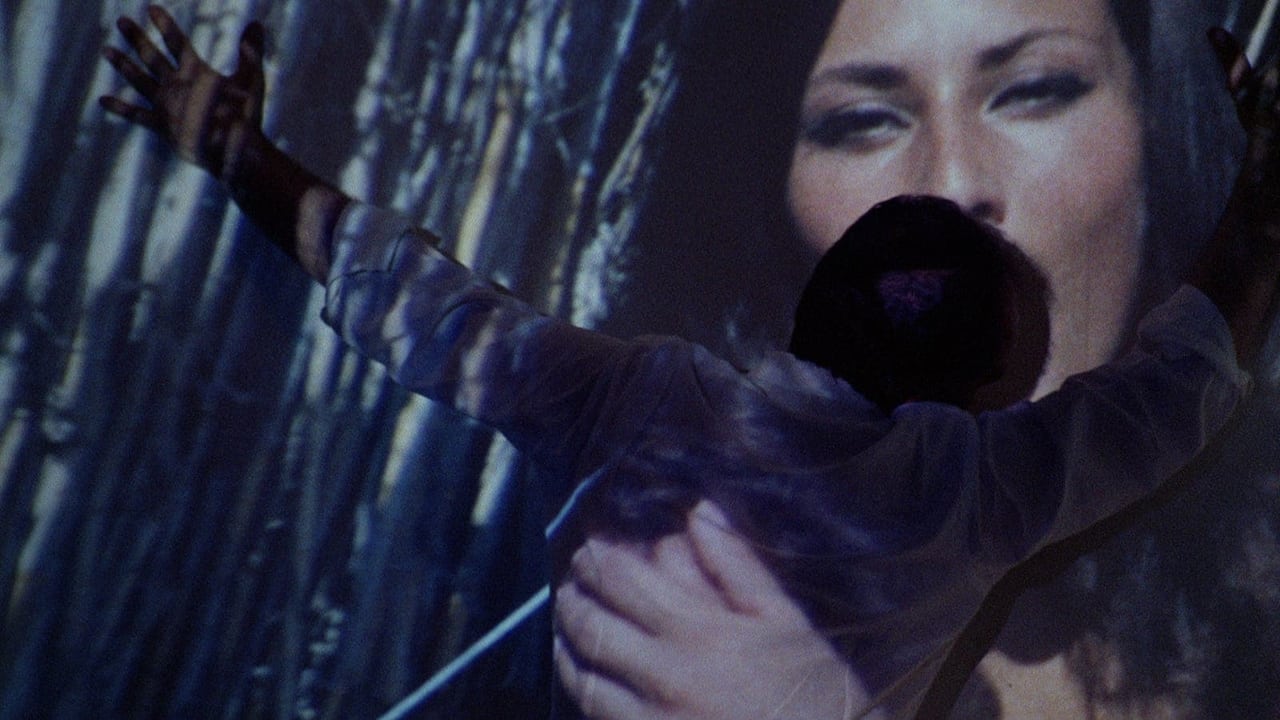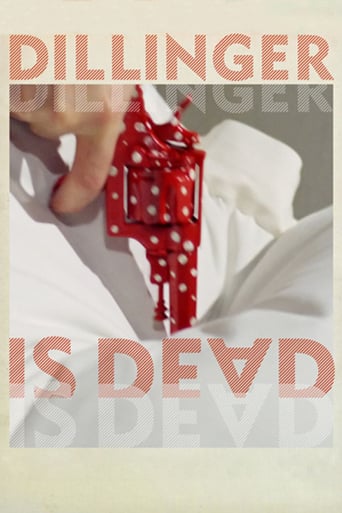

I've been a fan of this website since the days when most movies had 2-3 reviews, and those were from people who could discern good from bad. It's been sad to see how things have deteriorated to the point where if a reviewer doesn't enjoy an objectively decent movie it gets a 1-star rating, and fanboys give all sorts of dreck 10 stars. It's to the point where I no longer trust the ratings on this site. With that preamble, or apology, if you will, out of the way I wholeheartedly and without reservation gives this movie 1 star. There are so many interesting, lyrical, involving Italian movies, from Two Women to 8-1/2 to Rome:Open City to The Bicycle Thieves, among many others. And I've seen plenty of self-involved Italian crapola over the years, esp M Antonioni's mostly unwatchable output. But this takes the proverbial cake. It starts with a guy in an industrial setting being read to by a co- worker. In the first five minutes, before the credits even roll, I bet half the audience was already regretting going to the theatre to watch this. Then the guy goes home and cooks dinner for about an hour. It's as though Ferreri was daring viewers to walk out. I never thought I would see a movie that rivals the worst of Canadian Film Board-subsidized garbage, but I was wrong.
... View MoreA well-off industrial designer, Glauco, comes back home and sees his wife who allegedly has a headache and rests in bed. She leaves him a cold dinner, lest Glauco should feel hungry. Nevertheless, Glauco chooses to prepare the meal on his own. While cooking, he discloses a gun wrapped in a newspaper which recounts events regarding a famous mobster Dillinger's demise Whilst reading this paragraph, one is likely to scratch his head and reassure this is what the movie is genuinely about. This is no mistake – Dillinger is Dead is precisely a product of its time. A bold, weird and mesmerizingly original film which has more in common with existentialism and fantasy than Dillinger himself. The concept of merging reality with surrealism and transmuting it into an artistic manifestation is indubitably exquisite. Straightforwardly speaking, the story by Ferreri is an infant of sheer uniqueness and it stimulates one's senses. Despite the fact that the whole motion picture is virtually filmed solely in Glauco's apartment, Ferreri aptly lunges the plot and it consequently never drags or feels rushed. The characters existent in the flick sporadically encounter one another and the action generally revolves around Glauco. Neither does one get to know his past, nor his views on the outer world. Yet, his mental state is absolutely precise and visible inasmuch his soul is diaphanous owing to Ferreri's fantastic mise-en-scène which visualises Glauco's existential ennui by exposing his disparate acts in his home which serve totally nothing. The protagonist seems nearly a phantom creeping through ensuing chambers of his apartment. He desperately endeavours to do something, satisfy himself anyhow, still he is at a loss for options. His behaviour perpetuated on the celluloid consists of most probably his everyday activities. This enchantingly articulates the meaninglessness and pointlessness of his life. What is new in his life is the weapon wrapped in the mysterious newspaper which inscrutably appears in his apartment. Once he finds the gun, he gradually embarks on altering his life and this is the onset of his transformation which leads to the abrupt and outré denouement.Mario Vulpiani's cinematography captures the infertility of Glauco's actions in an eye-pleasing manner and it's occasionally ravishing and co-operates with the soundtrack by Teo Usuelli duly. The performance by Michel Piccoli is very good, resembling his appearances in Bunuel movies in which he plays analogous roles. His minimalistic attitude is very appropriate and renders the character plausible.While portraying existential ennui wasn't something ground-breaking and refreshing in 1969, what strikes in case of Dillinger is Dead is Ferreri's atypical execution of the material. Apart from being structurally quite precisely delineated and recounted, it's far from being a film reminiscent of Edward Munch's painting The Scream or Antonioni flicks. What one might behold here is a huge irony, enormous portions of dark humour and hilarious wickedness. Given that Ferreri was a leftist, it may be analysed as criticism of bourgeois class – filled with money, yet incapable of spending it on laudable aims or developing their interests since there are not such for them. Hence, the movie works well as a wicked depiction of pointlessness of human in modern society as well as a political and satirical manifesto. No matter how sophisticatedly one approaches Dillinger is Dead, it is a highly riveting piece of cinematographic extravaganza which ought to appeal to those seeking for something else and lovers of the sixties or art-house cinema, whereas all others should make allowances for the possibility that this slow-paced, somewhat plot less quirk might be emotionally insufficient and boring as well as possibly exasperating for some.
... View More"Dillinger è morto" is a bizarre Italian film by Italian director Marco Ferreri, made in 1969, and never shown in the U.S. until now, 2009, in its scattered special engagements. I had the good fortune to catch it in Rome in 1970, on my last night in the city, at the neighborhood Cinema Farnese in Campo de' Fiori.It deals pretty much with an evening in the life of a character named Glauco, played by Michel Piccoli, who comes home from work in a gas-mask factory, is disgusted with the cold supper left for him by his always sleeping wife, prepares a gourmet meal of his own as he cleans (with virgin olive oil) a revolver found in a closet and wrapped in old newspapers. The papers contains the story of the death of American gangster John Dillinger. The revolver, of uncertain origin, obsesses him. When done, he paints it red with white polka dots. This is an interesting man but hardly a sane one. And then...well, and then...what Glauco does with that revolver and how it becomes an invigorating turning point in his unwell life, gives the film a measure of its eerily fascinating allure. This lost cult movie is certainly an interesting counterpoint to Johnny Depp's current "Public Enemies," about the gangster himself.I never thought I would see it again, since it has never been available on video or DVD. Yesterday I caught it at the Brattle in Cambridge. You may like it; you may not. But, as with me four decades later, it will never leave your mind.
... View MoreThis movie follows Glauco, an insomniac who entertains himself at night with the small things in life, a newspaper, his dinner, or even his reflection. As the viewer follows his actions it is so slow, and so drawn out, that we actually begin to feel his boredom, and find entertainment in the details of the movie, much as he does in his life. If you're more of a fan of Bruckheimer than Visconti you will not find this movie entertaining enough, but paying close attention to the shots, scenes, and characters you will find this movie intensely interesting. It is through the feelings in the film, the closed in, slow and meaningless life he leads at home, we start to understand and appreciate the way he finds joy. (POSSIBLE SPOILER) Until his meandering ways lead him to the ultimate form of immediate entertainment, immediate and indefinite. It is a window into a new life, which we have to believe he will also grow tired of. And it finishes in the same odd fashion, our strange character riding off into the sunset.
... View More